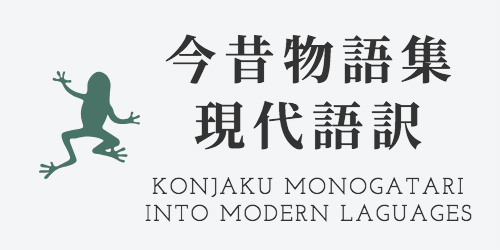Once upon a time, in India, there were three animals: a rabbit, a fox, and a monkey. They were practicing the Bodhisattva’s path with sincere hearts.
“We bear heavy sins from our past lives and have been born as lowly animals. This is the result of not showing compassion to all living beings and being stingy with our wealth in our past lives. Therefore, in this life, we will give up our bodies and do good deeds.”
The three animals respected the eldest as a parent, treated the elder ones as brothers, and regarded the younger ones as their siblings, always prioritizing others over themselves.
The deity Indra saw this and was moved.
“Although they are animals, they possess such admirable hearts. Many humans kill living beings, steal property, kill their parents, treat their siblings as enemies, harbor ill will while smiling, and show anger while pretending to love. But I cannot believe that these animals hold sincere hearts. I will test them.”
Indra immediately transformed into an old man who appeared exhausted and feeble, and approached the three animals.
“I am old and weary and have nowhere to turn. Please take care of me. I have no children, no home, and no food. I have heard that you have deep compassion.”
The three animals, hearing this, said, “This is what we have been hoping for. Let us take care of you immediately.”
The monkey climbed trees and gathered chestnuts, persimmons, pears, jujubes, oranges, and various other fruits. He also went to the village and brought back melons, eggplants, soybeans, adzuki beans, cowpeas, millet, and foxtail millet, providing food according to the old man’s preferences.
The fox went to the graves and brought offerings of rice cakes, cooked rice, abalone, bonito, and various fish, giving him plenty to eat. The old man was completely satisfied.
A few days later, the old man said,
“The monkey and the fox have shown deep compassion. They can already be considered Bodhisattvas.”
The rabbit was determined and, after lighting a lamp and incense, raised his ears high, lowered his waist, opened his eyes wide, shortened his front legs, and opened his anus wide. He searched east, west, south, and north but found nothing.
The monkey, the fox, and the old man mocked, humiliated, and encouraged him, but the rabbit still found nothing.
“I went to the wild mountains to find food for the old man, but the mountains are dangerous. There is a risk of being killed by humans or eaten by other animals. The possibility of losing my life is high. Therefore, I will give up my life now to become food for the old man and leave this existence.”
The rabbit said to the old man,
“I will bring you something delicious now. Gather some wood and light a fire.”
The monkey gathered wood, and the fox lit the fire, waiting for the rabbit to bring something. However, the rabbit returned empty-handed.
The monkey and the fox said,
“We were waiting because you said you would bring something, but you have nothing. You lied to make us gather wood and light a fire just to warm yourself. How hateful!”
The rabbit said,
“I was not able to find any food. I will burn myself and let you eat me.”
Saying this, the rabbit jumped into the fire and burned to death.
At that moment, Indra returned to his original form. To show everyone, he transferred the shape of the rabbit that had entered the fire to the moon. The clouds in the moon are said to be the smoke from the rabbit burning, and the rabbit in the moon is the shape of that rabbit. Whenever people look at the moon, they remember this rabbit.
[Translation]
Siro Inuzuka
This text was created by using ChatGPT-4o to translate a modern Japanese translation into English, and then making some modifications. There may be errors in the English expressions. Please correct any mistakes.
[Explanation]
Shinichi Kusano / Siro Inuzuka
This story served as the introduction to Osamu Tezuka‘s masterpiece, “Buddha.” Among the numerous Buddhist parables, it is likely one of the most famous. Tezuka depicted the three animals as a rabbit, a fox, and a bear, probably altering them for visual appeal.
Volume Five of the “Konjaku Monogatari” contains many stories about the previous lives of Shakyamuni Buddha, but the original source of this story, “The Great Tang Records on the Western Regions” by Xuanzang of the Tang dynasty, does not identify the rabbit as a previous incarnation of Shakyamuni. This is because if the rabbit were in the moon, it couldn’t be a previous incarnation of anyone. The “Konjaku Monogatari” delicately refers to this as “the shape of a rabbit,” which is a somewhat ambiguous expression.
The most significant alteration from “The Great Tang Records on the Western Regions” is the creation of two skillful side characters, the monkey and the fox. It is precisely because these two effortlessly gather food that the rabbit’s despair and self-immolation stand out.
An interesting detail is that when the rabbit goes to search for food, it lights incense. Since this is not for a Buddhist offering, why would it need to light incense? If anyone knows, please enlighten me.
Indra, in this story, is a god from Brahmanism and is considered a guardian deity in Buddhism. Buddhism originated from within Brahmanism.
Regarding this text, Ryunosuke Akutagawa noted:
The phrases starting with “raised his ears high” cannot be found in other versions of the same story, such as “The Great Tang Records on the Western Regions” or “The Forest of Pearls from the Dharma Garden.” (As everyone knows, this story is about a past life of Shakyamuni Buddha, as found in the Jataka tales.) Therefore, this vividness must be attributed to the author’s descriptive skill. Because of this vividness, the rabbit from ancient India feels very real to us.
[Cooperation]
Shinichi Kusano
●Japanese

●Croatian










コメント